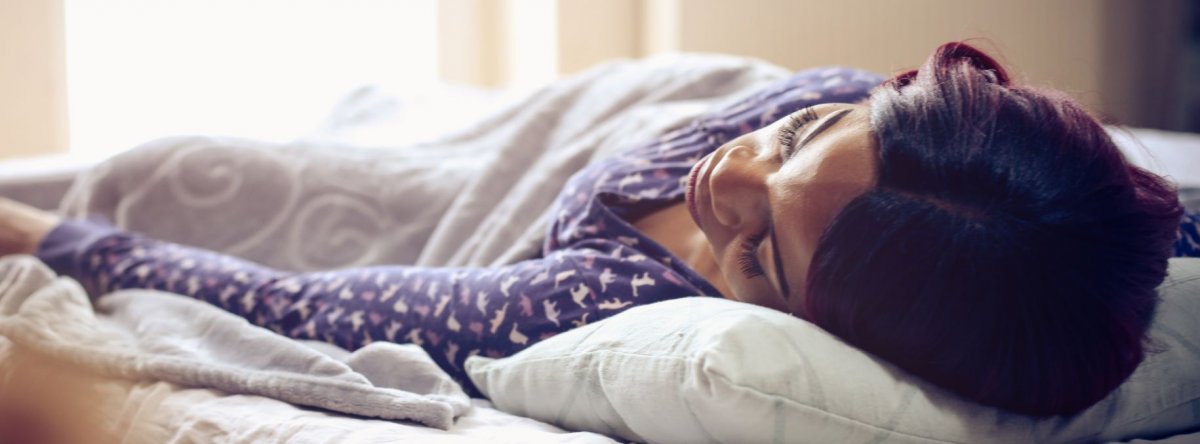Sleep and rest
The NICE guideline for M.E./CFS recommends that health professionals give the following guidance on rest and sleep:
"1.12.1 Advise people with ME/CFS:
- about the role of rest in ME/CFS
- that rest periods are part of all management strategies for ME/CFS
- how to introduce rest periods into their daily routine, including how often and for how long, as appropriate for each person
- that relaxation techniques at the beginning of each rest period could be helpful.
1.12.2 Give people with ME/CFS personalised sleep management advice that includes:
- explaining the role and effect of sleep disturbance in ME/CFS
- identifying the common changes in sleep patterns seen in ME/CFS (such as broken or shallow sleep, altered sleep pattern or hypersomnia)
- developing good sleep habits
- taking into account the need for rest in the day, and balancing this against how the person is sleeping at night
- introducing changes to sleep patterns gradually.
1.12.3 If sleep management strategies do not improve the person's sleep and rest, think about the possibility of an underlying sleep disorder or dysfunction and whether to refer to an appropriate specialist. Review the use of rest periods and sleep management strategies regularly as part of the person's care and support plan."
Sleep problems
Writing in our membership magazine, InterAction, Action for M.E.’s Medical Advisor, Dr Gregor Purdie, offers the following advice:
People with M.E often report sleep problems, ranging from oversleeping (hypersomnia) to insomnia to sleep apnea (a sleep disorder that occurs when people’s breathing is interrupted during sleep).
The type of sleep problem encountered varies from person to person, and can change over the course of the illness. Hypersomnia is generally noted to be more of a problem in the early days of the illness.
Further studies into the sleep problems of people with M.E. are needed before specific, formal guidance can be developed. In the meantime, there is a series of general NHS recommendations known collectively as “sleep hygiene.” Some are of value to people with M.E., some less so, particularly if they are bed-bound and unable to follow guidelines about not using bed apart from for night time sleep and intimacy.
- Sleep at regular intervals. This is standard advice to encourage getting into a regular sleeping pattern. However, this can be problematic for people with M.E., who need to respond to fluctuating energy levels. One person told us: “I was told to avoid sleep during the day and use, as frequently as required, regular restorative relaxation. You can’t store sleep for the following week.”
- Make sure you wind down. Advice is to consider having a warm bath before bed. This brings the body temperature to the right level for falling asleep. However, not everyone with M.E. can tolerate warm baths. Some find it helpful to write lists for the following day, do relaxation exercises, read a book or listen to relaxing music or talk radio. The important thing is to do something that helps you wind down, so you are not feeling stressed at bedtime.
- Make your bedroom “sleep-friendly.” Advice is that the bedroom should be a relaxing environment, associated with sleeping - as opposed to working, watching TV, etc. There can be increased difficulties sleeping after using screens that emit ‘blue light’, such as TVs, laptops and mobile phones. Switching them off two hours before bedtime can be beneficial in getting off to sleep. Bedrooms for sleep at night should be dark, quiet, tidy and ideally kept between 18° and 24°C. Also make sure you have a supportive, comfortable mattress and pillows.
- Other remedies. People with M.E. often report that they feel "tired but wired". Although physically exhausted, their system is still fully alert. Standard advice then is to get up out of bed, and do something relaxing. Go back to bed when feeling sleepy. Distraction can be helpful; there are many suggestions online for techniques to help with it. White noise can be helpful if you are living in an area where noise can’t be avoided. The important thing is to switch the mind off from stressful thoughts and promote relaxation. Meditation can be most helpful in this situation, and can be practiced through self-hypnosis or mindfulness for example. There is a wide range of meditation CDs on offer, and many free, guided meditations online, particularly on YouTube.
Medication can play a part in aiding sleep, and can be used as a short-term aid to kick-start the process of improving sleep.



